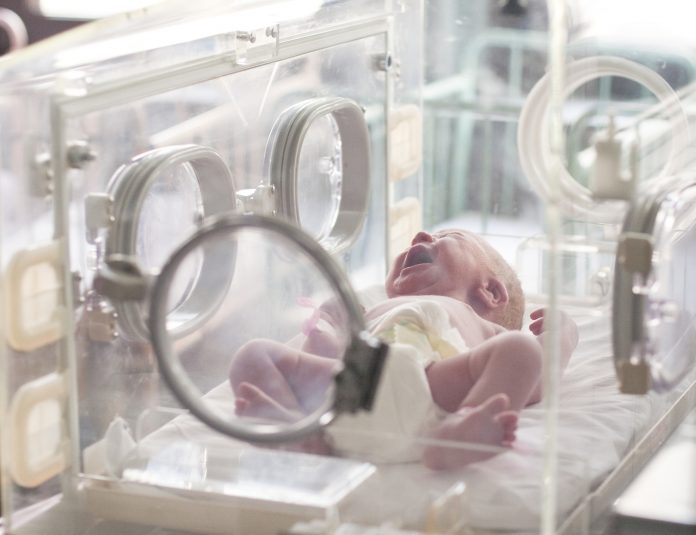Parents of babies leaving the NICU have been using an app to get real-time medical updates – giving them vital information that may otherwise get lost
New parents often feel like there is a wave of unknown information about taking care of their newborns, a feeling which is intensified when a baby is born prematurely or needs a lot of initial medical care.
A new study has found that using an app to help boost parents’ confidence is becoming popular, with the Parents App offering videos on how to swaddle, feed, and hold fragile premature babies.
Parents of premature babies in the neonatal intensive care unit (NICU) usually receive far too much information about their baby’s changing weight, respiratory levels, feeding patterns and more, which can become scary and overbearing for new parents, especially when they’re sleep deprived and stressed.
So, researchers made an app tested at Northwestern University, NICU2Home – which is still in the research phase – which aims to make this transition to new parenthood easier.
“Many parents don’t feel comfortable taking care of them because they’re very small, SICK AND ARE CONNECTED TO MONITORS AND TUBES”
A new study finds that the app increases parents’ confidence taking care of their babies, which continues to help them up to a full month after they’ve left the hospital. When parents need to go home while the baby is still in the NICU, they are able to remotely check the app for live updates on who is caring for their child, like a nurse or doctor, and receive updates on the baby’s medical status.
Parents in the study who used the app reported higher self-efficacy, like feeling more confident about taking care of their babies, while their babies were in the NICU as well as up to 30 days after being discharged, compared to parents in the control group who didn’t use the app.
App curates personalised information for each baby
Research finds that parents in the NICU are often distracted, tired or under too much stress to fully absorb clinicians’ amount of information about their babies.
To make this easier, the app gives personalised educational information to parents, including developmental milestones by age, common health concerns and even video demonstrations – such as feeding and swaddling – gives parents information they could have missed from the their clinician.
The study finds also that there is an association with how often parents used the app and their reported level of confidence caring for their baby.
Lead study author and app co-founder Dr. Craig Garfield, said: “A lot of the things parents do to take care of a baby, like feeding or bathing or even holding, are taken care of by the professionals in the NICU. Many parents don’t feel comfortable taking care of them because they’re very small, sick and are connected to monitors and tubes.
“Our app was designed to support parents on being the most prepared mother or father for that particular baby.”
Parents used the app 15 times a day, on average
Assessing the app engagement, the scientists tracked how many times users tapped the app. On average, participants tapped the app 15 times per day. Those who tapped more than that had higher self-efficacy scores, entailing an association with how often someone used the app and their confidence caring for their baby.
A total of 298 parents were enrolled in the study – 123 control and 175 who used the app – and 256 completed the Parenting Sense of Competence scale (PSOC) screening, which occurred at four time points throughout the study: around the day of birth, one day before discharge and at 14 and 30 days post-discharge.
Garfield added: “As a clinician, I might only have a limited amount of time to talk to a family about an issue with their child or they may be overwhelmed, but with the information offered in the app, being connected to the electronic medical record and being able to access the app for a full year after leaving the NICU, we think it’s a really useful tool for parents in the NICU.”
Study co-author and app co-founder Young Seok Lee, said: “Our goal is to empower NICU parents with a digital technology providing the right information at the right time. With greater understanding of how to navigate the NICU, parents can confidently the provide right care for their babies and for themselves, too.”
Garfield further said: “We found the first thing users would do in the morning is check the app because it gives them an update on what happened overnight. Did the baby move into an open crib? Were there any changes in their respiratory situation? Did the baby gain weight? They also check it right before bed at night.”
The NICU2Home app is currently deployed in a study at three Chicago-area hospitals. The research team aim to expand the app to include parents of full-term babies who were born during the COVID-19 pandemic.












Hey. This Hilary.